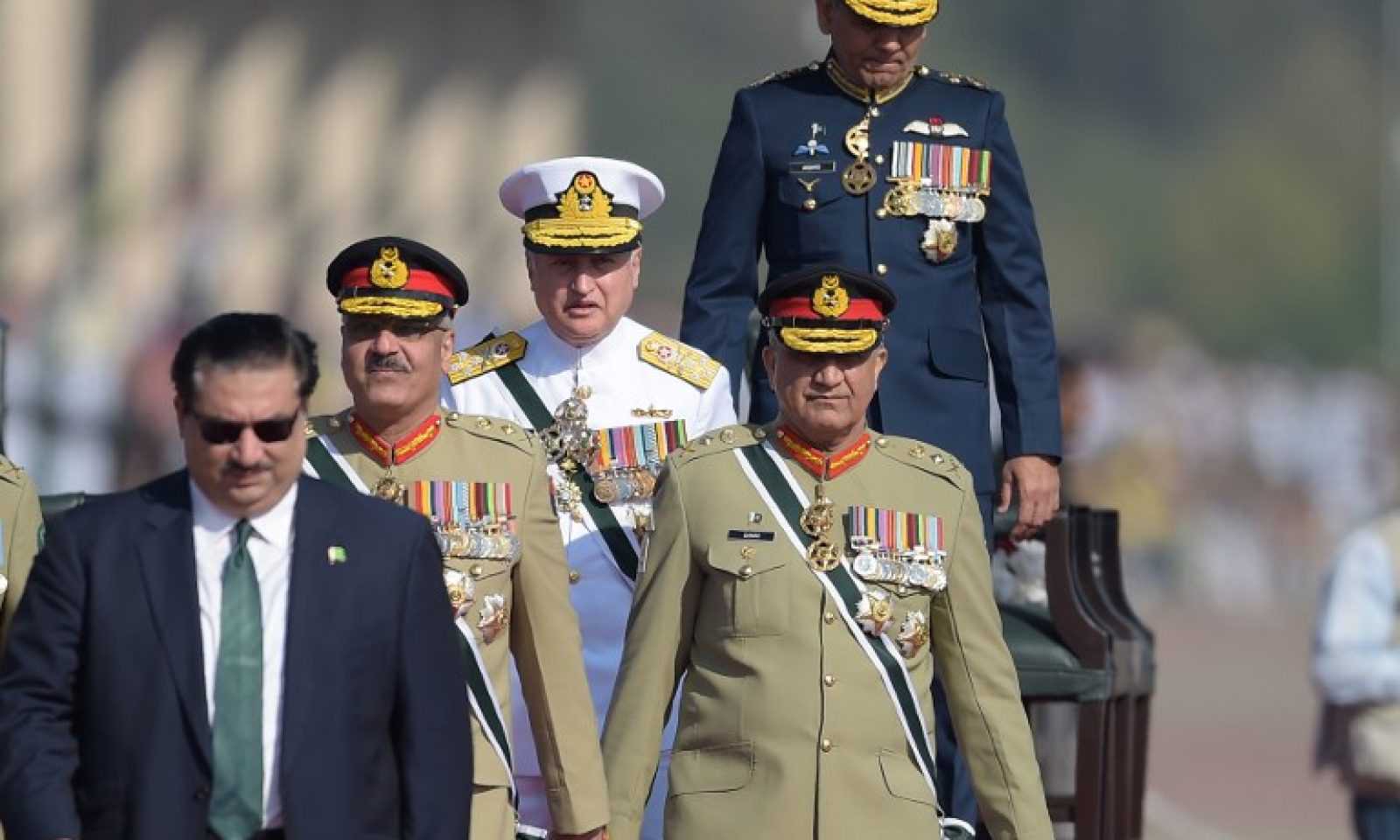Can Pakistani military diplomacy achieve foreign policy goals?
06 October, 2018

Pakistan Army Chief of Staff General Qamar Javed Bajwa visited China and met with Xi Jinping on September 19. He calmed rumors in the media about the China-Pakistan Economic Corridor and assured the Chinese president that the Belt and Road Initiative (BRI) with CPEC as its flagship was destined to succeed despite all odds and that the Pakistan Army would ensure its security at all cost.
It was a successful visit that cleared the air on a project that is essential to both countries.
The general’s visit, however, was criticized by Western think-tanks stating that Pakistan Army generals enjoy quite a lot of influence in national decision-making and foreign policy. The criticism prompted me to look at other countries, particularly the United States, and the role of their armed forces in grand strategy and foreign policy.
It has been quite common for US presidents to appoint both active and retired generals to important political positions. President Harry Truman appointed General George Marshall, chief of staff of the army, first as secretary of state and then as secretary of defense. Two of Ronald Reagan’s national security advisers, John Poindexter and Colin Powell, were active-duty officers. George H.W. Bush also appointed Lieutenant-General Douglas Lute, a serving general, to his policymaking team. President Barack Obama selected General John Allen as his national security adviser and appointed him to work on the Israeli-Palestinian peace process.
In the US administration of President Donald Trump, generals enjoy particularly influential positions. H.R. McMaster was a serving general when he was selected as national security adviser, though he later relinquished the appointment over a disagreement with Trump. General James Mattis is the current secretary of defense and General John Kelly is the White House chief of staff. The Secretary of State, Mike Pompeo, is a former military officer. These men hold top positions of political influence in the Trump administration.
Actually, the US has long institutionalized the civil-military relationship in the policymaking process. The US National Security Act of 1947 created the Joint Chiefs of Staff, the National Security Council, and the Department of Defense, which provide essential input on foreign policy to the US president. It is quite interesting to note that while the new US law sometimes subordinated the military to a civilian secretary of defense, it also officially incorporated US generals in the formulation of US foreign policy and grand strategy.
The Chinese military theorist Sun Tzu is perhaps the earliest advocate of the vital link among the military, diplomacy and other elements of national power. Dating from 500 BC, Sun Tzu’s work The Art of War discusses the interconnections of military action not only with diplomacy but also with the aspects of economy and information.
Expanding the context of this debate, Prussian military theorist Carl von Clausewitz opined, “No major proposal required for war can be worked out in ignorance of political factors…. [Likewise,] if war is to be fully consonant with political objectives, and policy suited to the means available for war … the only sound expedient is to make the commander-in-chief a member of the cabinet.”
Recommending that the commander-in-chief be a member of the cabinet, Clausewitz highlighted the importance of fully synchronizing the multifaceted capabilities of the military with the other tools of policy implementation. Incorporating the commander-in-chief in the cabinet promotes the coordination and synchronization of government actions across the spectrum of power.
From the earliest days of history, many of the great minds of warfare addressed the need to understand the inevitable influence and involvement of military activities in affairs outside of fighting
Political scientists have long noted the existence of military diplomacy. Even Niccolò Machiavelli described how military officers disguised as valets would accompany the ambassadors of ancient Europe. Quite recently the US secretary of state was accompanied by the chairman of the Joint Chiefs of Staff, General Joseph Dunford, an active-duty officer, during his important visit to Pakistan when they met with Prime Minister Imran Khan on September 5.
From the earliest days of history, many of the great minds of warfare addressed the need to understand the inevitable influence and involvement of military activities in affairs outside of fighting. The linkage between military operations and those of diplomacy, economics, information, intelligence, and other elements of national power is not a newfound concept; rather, it is a concept that dates back centuries.
Military diplomacy is an accepted and essential component of national diplomacy. The military aspect of the project or issue decides the prominence and significance of military engagement with a specific country. The Pakistan Army is a well-organized institution, backed up by intelligence inputs, think-tanks and expert analysis. It is time for Pakistan to benefit more, not less, from military diplomacy and its responses.
If the appointments of US generals to top political positions do not injure the pride of “civilians” nor threaten the democracy of the world’s superpower, the Pakistan Army chief also does not violate established rules of diplomacy by meeting with the Chinese president.
The growing interdependence and complexity of international issues necessitate a more networked approach to diplomacy. Pakistan has displayed coordinated strategic diplomacy, with its prime minister going to Saudi Arabia and his army chief to China.
The message is for the rest of the world: We in Pakistan have allies in powerful places.
